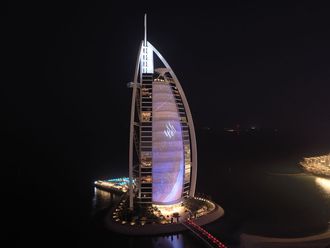Dubai: Dubai ranked first in the Middle East and Africa region for quality of living, according to a report released on Wednesday by human resources consultancy Mercer.
The 2015 Quality of Living report, which ranks 230 cities, indicates that Dubai was ranked 74th globally, having dropped one spot from 2014, while Abu Dhabi took the 77th spot, up one place from 2014.
In another report by the Alumni Association of graduate business school Insead released November last year, Dubai was ranked the most attractive place to live in terms of professional and private life.
The report surveyed respondents of 35 different nationalities to rate 15 key cities in the world in terms of economic dynamism (quality of labour, access to funding); quality of life (sports and cultural facilities, air quality); cost of living (real estate, dining, entertainment) and overall attractiveness (young talent, access to technology). Dubai ranked first in economic dynamism, third in overall attractiveness and fourth in terms of quality of life and cost of living.
Stable
As per Mercer’s report, most of the countries in the region maintained a stable position compared with 2014, with Amman, for instance, climbing five places to 122, according to the report. However, Beirut dropped eight places to rank 181, while Cairo fell nine places to 170.
Vienna was the city with the best quality of living for the second consecutive year. It was followed by Zurich, Auckland, and Munich, having taken the second, third, and fourth place respectively.
Fifth-place was taken by Vancouver, followed by Singapore at 26.
Infrastructure has a big effect on the quality of living that expatriates experience, said Nuno Gomes, Information Solutions Middle East Leader at Mercer, in a statement.
“While often taken for granted when functioning to a high standard, a city’s infrastructure can generate severe hardship when it is deficient. Companies need to provide adequate allowances to compensate their international workers for these and other hardships,” Gomes added.
He said that multinational companies need to be aware of current events and local circumstances to ensure their expatriates are compensated appropriately and an adequate hardship allowance is included in compensation packages.
“Factors such as internal stability, law enforcement effectiveness, crime levels and medical facilities are important to consider when deciding on an international assignment, and the impact on daily life that could be encountered by the expatriate in overseas placements,” he said.
Mercer’s report considers a city’s political and social environment, medical care and health considerations, public services, recreation facilities and natural environment, among others.
Dubai is also the most popular long-haul destination from many European cities, including Frankfurt and Munich.












